Huge Star Explodes 168,000 Light Years Away, Tiny Brain Does Same Here
Hey, want to see what a star exploding looks like in 3-D? Of course you do, it’s totally amazing. Astronomers using the Very Large Telescope (that’s what it’s called) in Chile, have sent back zoom-lens images of supernova 1987A, which blew up 168,000 light-years away from earth and was first discovered in 1987. How we’re able to see this event, that happened in the past, and was apparently visible to the naked eye 23 years ago, today, is one of those questions that hurts my brain to think about. Moving stuff is frozen in time by the incredible long distances in space? I guess? I don’t know. But it’s pretty like jellyfish in a Jaques Cousteau film.
Norman Spinrad Trashes Knopf, Sonny Mehta, Chip Kidd and American Publishing

Last night, the long-time scifi writer Norman Spinrad (who earlier this year was diagnosed with stomach cancer) published the second of a three-part series on “THE PUBLISHING DEATH SPIRAL.” It’s amazing! In it, he trashes his relationship with Knopf, who sank one of his books, trashes book designer Chip Kidd (for having more power than the editors) and trashes his Knopf editor for being useless, spineless and not so bright. It’s a great read; I don’t agree with all of it but it’s illuminating. One thing that really stands out is the way the U.S. book publishing system is an entirely different animal than that of other countries. In the U.S., publishers will buy books and then, shortly thereafter, not care about them in the slightest, and on some level, Spinrad can’t quite accept that this is a systematic thing. He’s looking for a reason from Knopf honcho Sonny Mehta of why books like his get thrown on the pyre, and actually, there is no reason, and Sonny Mehta doesn’t care about your book! It’s expediency, it’s capitalism, it’s people who don’t have time, it’s because there’s no incentive in American publishing to care. Last week, actually, Spinrad did a pretty good job of explaining the diminishing returns of orders and expectations for writers.
Let’s say that some chain has ordered 10,000 copies of a novel, sold 8000 copies, and returned 2000, a really excellent sell-through of 80%. So they order to net on the author’s next novel, meaning 8000 copies. And let’s even say they still have an 80% sell-through of 6400 books, so they order 6400 copies of the next book, and sell 5120….
You see where this mathematical regression is going, don’t you? Sooner or later right down the willy-hole to an unpublishablity that has nothing at all to do with the literary quality of a writer’s work, or the loyalty of a reasonable body of would-be readers, or even the passionate support of an editor below the very top of the corporate pyramid.
And there’s a further wrinkle to it because what significant independent bookstores that still survive and the non-speciality outlets like WalMart subscribe to BookScan and have access to the Death Spiral numbers too and act accordingly. If there’s a book to order at all, because in many cases if the chains’ order to net equation zeros out and they don’t order at all, the book in question doesn’t get published. Back in the day, I knew of novels that were commissioned, accepted, and paid for but never published because the chains didn’t order. Today BookScan prevents such expensive mistakes from happening by aborting them at the acquisition stage.
And how does that play out for the author? As he wrote last night:
Without BookScan, order to net, near monopolies on the retailing end, and a conglomeritized industry where the great idioyncratic independents like Scribners, Random House, and yes Knopf, have become mere brand names owned by a scant handful of multinational corporations, a Sonny Mehta, running on whatever motivation, would still be able to assassinate a single novel by publishing it badly, but not the author’s ongoing career.
Or not for sure, anyway. Back in the day, you could write your way out of it if you were good enough by writing a novel great enough to be recognized as a great novel by a single editor with the passion and the leeway to ignore the previous strike-out at bat and swing for the fences. Back in the day, there were many more editors like that because there were many more independent major publishers, hence much more real competition on the acquisition end, hence as much reliance on analog editorial judgement as digital Nielsen numbers.
Twitter vs. Google: Which Gets You Better Info, Really?
by Katjusa Cisar
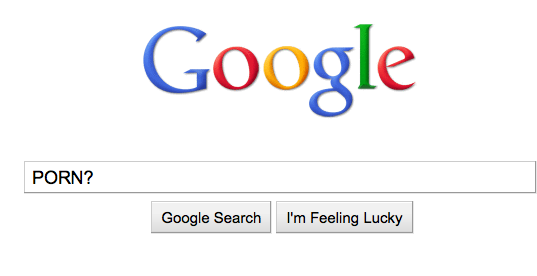
It’s painfully quaint now, but there was a time in the not-too-distant past when using “google” as a verb sounded strange and people sheepishly chuckled about “googling” themselves. Now we have a staggering number of ways to suss information out of the “World Wide Web,” to stalk and to share knowledge (or kittehs and double rainbows, whatever). Last week, Facebook widened the possibilities even more when it started rolling out a feature that allows a Facebooker to draw on the site’s more than 150 million other users for answers to questions. Facebook Questions gives users options to run a poll, to tag questions in categories or sign up for alerts when new answers pop up. For the past month, I’ve been testing the limits of Facebook Questions’ basic premise: the fusion of social network and information hub.
But not on Facebook-I got off Facebook last year when I realized my willpower was no match against the lure of mindlessly clicking through the vacation photos of the ex-girlfriend of a guy I was in Algebra class with 15 years ago. Not even Facebook Questions can win me back.
Still, I’m not convinced that a Google search, swayed as it is by SEO manipulations and popularity, is the superior source of information. Twitter, my social network of choice, is populated by real people (mostly real, anyway) who understand nuance, have preferences based on emotion not statistics, and can explain instead of regurgitate. I’ve got about 670 Twitter followers, and minus the homeowner’s insurance companies, Holiday Inns and follow-happy “social media gurus” among them, it’s still an opinionated and smart bunch of twits.
At first I thought I’d google nothing I didn’t also tweet. But this proved to be seriously inconvenient: Google is clearly better at finding addresses, spellchecking names and doing work-related searches I need to keep private. (Lest we forget, asking for information on the Internet is just a way of giving it to dataminers.) For a couple of days, however, I forced myself to find addresses on a paper-and-ink map and look up numbers in the phone book. Heaven knows I have enough phone books lying around-AT&T; unloads them by the bagful in our apartment complex.
It turns out the old-school method is not that much more time-consuming than firing up my laptop and googling. Also, while thumbing through the Yellow Pages to find a music venue in Atlanta called The Tabernacle, I discovered the awesomely-titled Tabernacle of Joy Miracle Deliverance Center.
So, is Google or my Twitter followership a smarter culler of information? Following are some of the queries from my (very unscientific) Twitter vs. Google experiment.
Tweet: “Would it be gauche to wear my Foxy Shazam T-shirt to a Foxy Shazam show? Is there an unspoken rule on concert attire?”
Result: This elicited more responses than any other question I’ve ever asked of Twitter. “I’ve been told that wearing the band’s shirt to the show is ABSOLUTELY not a done thing. So wear the tee & a button if you have one,” wrote one. The responses poured in: “I’ve never understood that rule,” “Why not fly the colors?” “as long as you wear it ironically,” “Obscure side project T-shirt works, too.” A mom tweeted, “The band won’t notice… and the fans won’t care. And if they do care, you’re cooler than them anyway. Wow, do I sound like a mom much?!” Only one person cautioned me not to wear the shirt (“Don’t be that girl”).
Google Search: “rule for wearing band t-shirts at concerts”
Result: In .29 seconds, Google brought up 449,000 sites-including one convoluted eHow article (a 10-step process!) and mostly humorless scenester blogs and message board discussions from 2002.
Verdict: Twitter. Google gave me information overload, while the twits gave me attitude and a personalized pep talk. (OK, so I was just looking for excuses to wear my shirt.) As it turned out, lots of people wore Shazam shirts at the show, and at least two girls wore fake mustaches in honor of the lead singer’s own flamboyant ‘stache.
Tweet: “Anyone have that Vanity Fair profile of Courtney Love from ‘92? Curious to read it now after seeing her just barely make it through a show.”
Result: Minutes later, someone responded “Here you go! http://ow.ly/25PUN”
Google Search: “lynn hirschberg courtney love”
Result: Oh look at that, first result! Hrmm.
Verdict: OK, so maybe it was dumb to ask. But someone got to feel special and useful by providing me with an already-tiny, ready-to-retweet URL! So, I’m going with Twitter on this one.
Tweet: “Gross, yes, but I need folk remedies (no insurance): how do I drain the ugly plugged duct on my eyelid? It’s been there at least 6 months. …Eye doc says expensive surgery or hot compresses. Compresses don’t make the damn thing budge. So… #askingyoubeforeWebMDorGoogle”
Result: One reply. “Rub the white part of a potato on it. Seriously, it’s an Amish folk trick.”
Google Search: “clogged tear duct remedies,” “lump on eyelid”
Result: Through a series of alarming photo searches, I determined that what I actually have is a “chalazion,” not a plugged tear duct. Yeah, maybe that’s what the doctor called it. But all of the remedies seem to be along the lines of hot compresses and waiting it out. Sigh.
Verdict: Nobody wins. All I get from rubbing my eyelid with raw potato is an achy eye and dried starch crust on my cheek.
Tweet: Any Quakers/former Quakers out there? How do you answer the question, “What is Quakerism?”
Result: Two replies, “I’m eating their oatmeal right now, does that help?” and “Don’t know about Quakers but I am a Quacker. Which is what we aficionados of The Mighty Ducks trilogy-cycle call ourselves.”
Google Search: “what is quakerism?”
Result: Websites with relevant, non-goofy answers.
Verdict: Google. What you need, when you need it!
A friend did some testing of her own for this one:
Tweet: “Twitter! Help! I’m having a brain freeze today what’s an antonym for ‘jargon’?”
Results: Within a minute or two: Lay[man’s] terms, colloquialism, lingua franca, and “Antonym for ‘jargon’ = ‘English’ ;-)”
Google Search: “Antonym for jargon” and “jargon”
Results: Useless entries from Answers.com, websites of computer jargon, the entomology, uh, etymology of the word. Even Merriam-Webster wasn’t much help, plus it was full of blinking, slow-to-load ads.
Verdict: Twitter.
Tweet: “Anybody got some cheap skincare suggestions? I’m talking cucumber slices, that kind of thing. I can’t afford $27.99 for .25 oz. of eye gel.”
Result: Along with a few jokes (“just stop aging”), I got a recommendation for the 1988 book “Cheaper and Better: Homemade Alternatives to Storebought Goods” and another for honey-”Just plain old honey! I think any kind is fine. Leave it for at least five minutes, but I think the longer the better.”
Google Search: “cheap skincare”
Result: Ignored the eHow and About.com articles and zeroed in on this gem, “Really Cheap Skin Care Stuff…And a Cat.”
https://www.youtube.com/watch?v=W3LTADHD4SI
This woman justifies YouTube…. which is, yes, a subsidiary of Google.
Verdict: Toss-up. I doubt I would have found the book without the tweeted suggestion, but I wouldn’t have found that video without Google. (It never occurred to me to search YouTube for skin care advice, but I now I know better.)
Tweet: OK, hive mind, where are your porn recommendations?
Result: Twenty-six minutes of silence. Not even a pornbot follow. (Where are they when you really need them?) Then, a couple of replies, both incredulous (“Seriously? Dare I ask what for?”) and joking (“I read it for the articles”). When I tweeted again encouraging Direct Messages, well, they didn’t flood in. But I was surprised at how many people did open up, some of them people I’ve only met once or know only via Twitter. My favorite: “I can’t resist a poll (ahem) that I can respond to, even if the wife would rather I couldn’t. The Hun: diverse & free. Asian Thumbs: duh.”
Google Search: “porn”
Result: Porn Hub, Wanker Hut, Bang You Later, PenisBot. The most popular, I suppose? At the bottom of the page is a search result from “my social circle” (as defined by Google via my Gmail). It was a link to a February 2009 blog about “Super Bowl porn,” written by a friend of a friend of a friend. Google found porn for me by piecing together Gmail and Gchat data, and ironically, that weirds me out more than divulging my query to the world on Twitter. More on that later.
Verdict: Twitter. Mining Twitter for porn suggestions was partly a stunt, partly serious. I’m not well-versed in Internet pornography, but I am genuinely curious. I assumed that asking about porn would be so outrageous that I’d only get nervous jokes in response. But social media and networking are quickly eroding private vs. public life and changing how we define “stranger” (friend of a friend of a friend) and “acquaintance” (someone I know only via Twitter but trust more). Not that this is a new observation, but, man, it really crystallized when I found out the preferred masturbatory aide of people I hardly know.
Final verdict? It depends. The biggest surprise for me is how much people love answering questions on Twitter. (I tried the Twitter question aggregator TwitQA, by the way, but it didn’t generate much response. Don’t bother.) Google’s computer mind is super-quick and usually precise, but the danger in its algorithm is that it occasionally panders to ad-choked sites or generic information (eHow articles). Google’s attempt to make search results more relevant by bringing in data from a social circle of direct and secondary “connections” still feels clunky and invasive.
There’s something else you should know about Google. If you have Gmail, you see everything you’ve ever googled (click on More and then Even More at the top left sidebar of Gmail, then page down and click on Web History). Since I opened a Gmail account in the Spring of 2007, I’ve apparently searched 14,693 terms. On June 6, 2007 at 10:29 a.m. I searched for “random stuff to do,” for example. At 10:34, for “salacious.” Two weeks later, I was searching for “conjugated linoleic acid,” “benefits of trans fats,” my soon-to-be (now ex-) boyfriend, and his circa-1984 high school punk band, Juvenile Truth. Reading my search history is like reading a diary.
Google also examines trends in searching. On average, I Google the most between 12 and 1 p.m., on Mondays, and during the month of June. And my most searched term? Why, it’s me. Some things never change.
Katjusa Cisar is a freelance writer living in Atlanta.
Nick Denton: On the Web, Female Trumps Male, Youth Trumps Age
Another terrific monthly wrap-up email from Gawker Media honcho Nick Denton to his staff! One item that will surprise you: “There’s too much news on the web; and way too little explanation.” Intrigued? Want to… win the mornings? Read on!
From: Nick Denton
Subject: Top stories in July
Date: Wednesday, August 4, 2010, 5:18 PM
Kevin Purdy’s highly informative story about the effects of caffeine on the brain in Lifehacker was the breakout story of July. And the reader interest in the piece highlights — do we really need a reminder? — the draw of the explanation. There’s too much news on the web; and way too little explanation. Fully a quarter of the top stories are straight how-tos or otherwise helpful or informative.
Do we really need any reminders of the other patterns either? The stories to which people respond are the stories to which they’ve always responded, since way before the internet. Readers enjoy strong opinion, such as Charlie Jane’s attack on Night Shyamalan. They like mysteries, especially photoshop mysteries, as Gizmodo demonstrated with its coverage of BP’s photoshopped PR pic.
They like photographs generally, as Gawker demonstrated with its package of exclusive pics of Mark Zuckerberg doing dorky Silicon Valley things. And video: Adrian Chen’s slight item on a man with a hard-on for Sarah Palin was more popular than most wordier pieces.
We haven’t been known for great yarns, leaving that to long-form publications such as magazines. But Jezebel’s story about the clueless secretary, told through an email thread, showed how a narrative can work. (Jezebel was the star site of the month; though Gawker, io9 and Lifehacker also came in strong.)
Other patterns? Well, there were four stories featuring teenagers in the top 20; the 11-year-old girl abused by the evil trolls of 4chan; the 15-year-old who tricked Apple; the 17-year-old who swapped a phone for a Porsche; and the 19-year old extorted by the world’s worst person. In terms of web interest, we know that female trumps male. Youth also trumps age.
Take a look through the full list below of Gawker Media’s most viral stories. It’s seriously the best guide to web journalism there is. Every story that made it onto that list had to be both interesting and well-packaged. If you can get just a few of your pieces onto that list each month, you’re golden; both here and at any future media job.
Though I can’t say I recommend Dash Bennett’s approach, which was to run subject lines from emails I had sent him over the year. That item scraped in at #100.
Or course, there are plenty more gems among the thousands of stories that we put out each month, among those that don’t make it into the Top 100. I’m just going to mention one. If you have a moment, read Joel Johnson’s advice to people who take their phone affiliation way way too seriously. It’s as good a piece as you’ll read anywhere.
http://gizmodo.com/5585072/
JULY’S TOP STORIES
https://spreadsheets.google.com/ccc?key=0AvyOUt3j4XoudFRjRW81cTFDTVZXYy16T1l4X2NleGc&hl;=en&authkey;=CJXOmtsF
GROWTH BY SITE
https://spreadsheets.google.com/ccc?key=0AvyOUt3j4XoudFlYT1lSM0twSHNEWmNLRkYzZGxkSFE&hl;=en
Giuliani's Daughter No Altar Boy
by Nate Freeman
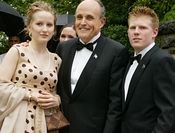
The Post is reporting that Caroline Giuliani, the former mayor’s youngest child, was arrested today at the Sephora on 86th and Lexington-near the home of her mother Donna Hanover, Rudy’s ex-wife- for allegedly shoplifting from the cosmetics store. The 20-year-old was caught in the act at 3:30 p.m., the Daily News alleges. This is the conversation I had with a Sephora employee shortly thereafter.
“Sephora on 86 and Lexington, how may I help you?”
“Yes, my name is Nate Freeman, I’m a reporter for The Awl-”
“No comment.”
“Um, excuse me?”
“Well, what are you calling about.”
“I was calling about the incident earlier today involving Caroline Giuliani-”
“I don’t know what you’re talking about. Have a nice day.”
Then she hung up the phone.
Caroline-a student at a university located in Cambridge, Massachusetts-was, last anyone heard, being held at the 19th precinct in Manhattan for processing.
Things To Gleefully Anticipate: Prop 8 In the Ninth Circuit
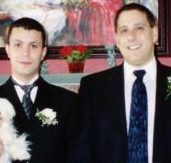
“California is able to issue marriage licenses to same-sex couples, as it has already issued 18,000 marriage licenses to same-sex couples and has not suffered any demonstrated harm as a result.”
–The big unsurprise: Prop 8 bites it in latest decision. Great news! This means it is off to the fun-loving Ninth Circuit, where they will literally laugh in the faces of the anti-gay-marriage folks! And possibly write a decision in the form of a sissy bounce video or something.
Letters to the Editors of Women's Magazines
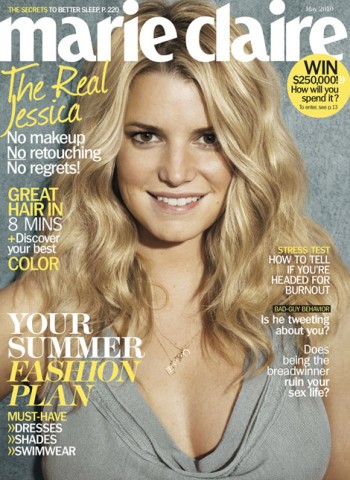
I thought this story [“The Mistake That Nearly Cost Me Everything,” by Piper Kerman] was very interesting, and I can’t wait to read her book. It’s amazing to think that something we may have done 10 years in the past could affect our future.
Kellymusil, marieclaire.com (Marie Claire, June 2010)
It’s amazing to think that when you do something, something else happens. It’s like, “What the?” (Imagine me looking slowly all around, like “Huh?”) (Now imagine I’m holding my fingers over my eyes like binoculars, looking around like I’m on safari. Now I’m pulling out a gun and acting like I’m shooting, like I’m hunting.)
Lee T., Sioux City, IA
Believe in Yourself
I have a lot of goals. Some of them are outrageous, and some are less extreme. People are always raising their eyebrows when I share these goals, and it’s disconcerting. I put your article up on my wall and will remember its advice; it’s just what I needed to hear!
Hilary G., Princeton, NJ (Glamour, June 2010)
I think of my goals as little pebbles, and my life as like the sack I carry the pebbles in. It’s like a leather pouch, actually, like the kind people used to have in medieval times. And the pebbles are actually jewels, and I would also have a gold crown that had little notches in it so that when I poured the jewels out and fit them into the notches on the crown, whoever I was with would be like, “Oh my god!” because they’d know I was a queen, because the same crown went missing years ago, and the legend was that whoever had the crown would be the queen.
Kelly M., Santa Barbara
A weighty decision
I related to “Would You Rather Be Fat & Happy? Or Thin & Sad?” [April, page 136]. … I know from experience that being obese makes me unhappy, not only because I don’t like the way I look but also because it could affect my physical health. Thank you for showing me I’m not alone.
Tierney W., Ottawa (Self, June 2010)
Thin and sad. Or, if it’s an option, extra thin and suicidal. Or, if at all possible, a skeleton that killed itself. Ashes that crumbled off a skeleton that killed itself. A gust of wind blowing through the eye socket of a skeleton that killed itself. A fart seeping from the asshole of a corpse that shit itself to death. In case those are ones I can choose.
Edith Z., Brooklyn
Biological Clock
I enjoyed the article about when a woman reaches her peak [“The Perfect Age,” April]. When I was 20, no one believed my age; most people said, “You’re not 20, you’re 16.” Now I’m 40, and most people say, “You look 20 years old.” Life is good.
Jana C, Longview, TX
I built a papier-mâché woman that has a crotch made out of a rubber flap. Sometimes I’ll put Vaseline on my face and slide through the flap like I just got born. One time I did it at work — I looked so young, my coworkers were stunned.
Lucy T., Raleigh, NC
It’s about time a natural beauty is on your cover. I’m glad Jessica [Simpson] doesn’t care what other people think. We should all be that way.
Sandra N., Long Grove, IL (Marie Claire, July 2010)
It’s so cool that Jessica Simpson doesn’t give a shit what other people think. I don’t either. I’m envisioning us, like, sitting on a porch when a guy walks by and goes, “Hey ladies,” or whatever, and Jessica’s just like, “Shut the fuck up,” and I’m like, “Literally go fuck yourself,” and he’d walk away, and we’d lapse into silence.
Lindsey T., Truro, MA
Support System
I loved “Best New Bras for You” [May]. But there still doesn’t seem to be a size for me: The bras are either too big or too small. How can I find the perfect fit?
S.C., Phoenix (InStyle, July 2010)
Here, I drew a picture of my breasts. Can you please tell me what is the best new bra for me?
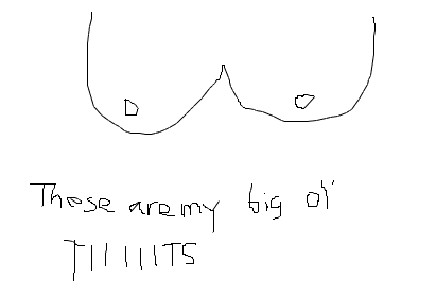
Thank you.
Lydia P., Lexington, KY
Previously: “I want to be a button when I grow up.”
Edith Zimmerman still lives in Brooklyn and now works here.
A Handy Guide to Which Black People Gossip Sells White People Ads and Pageviews
“Gossip, like everything else in the media, is a business…. The reason why Page 6 doesn’t care about Mashonda or Swizz Beatz’s past is because Page 6 has no real clue who the hell those people are. Or if they do know who they are, they do not care because they know that Swizz Beatz and Mashonda don’t sell ads.” (via)
Fight Night: Boxing Is a Bad Job, Badass
by Hamilton Nolan
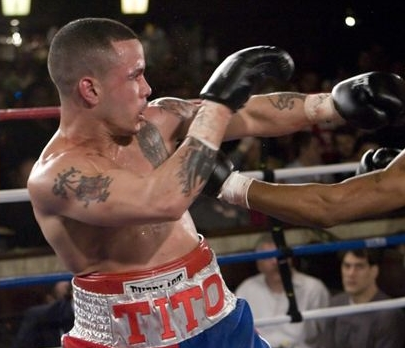
Oh! to be a professional boxer. To train and train and train and train, to sweat and bleed and trade blows upon blows, all in pursuit of the glory of beating an inferior opponent, in front of a horrifying crowd of drunk gangsters, in a basement club in Times Square. Last week I wedged into the packed house at BB King’s on 42nd Street for Broadway Boxing, an event featuring up and coming fighters-the level of pro who might make it onto HBO one day, but then again, might not.
The fighters you see may turn out to be worthwhile, may indeed climb the ranks and one day feature on the undercard of some future Vegas pay-per-view bout; or they might be working construction a few years from now, telling all the guys they used to fight, to approving stares. It’s that kind of show. (There are actually solid pros on the card too, but let’s not ruin the romance).
Not that there is anything wrong with watching these sorts of fights. New York City used to be full of them, in each borough, every weekend. Broadway Boxing is the closest thing the city has left to the regular club fights of yore, I guess, and for that we should appreciate it, even if wandering into BB King’s for such an event hits you like the realization that you accidentally went to the wrong club tonight, the club where all the real hardcore fucking Guidos are and where half the not-fun is trying to guess which of the hundreds of muscular baldies are real gangsters and which are fake-ass gangsters of most ridiculous sort, because both are well represented. I stood next to a whole group of menacing-looking twentysomething dudes with unidentifiable Eastern European accents all night. They were actually jocular and well-behaved, and had come to cheer on their friend who was making his pro debut (Stivens Bujaj, Heavyweight, 1–0, whose halfhearted opponent didn’t answer the bell in the third round), and when a fortysomething guy came over and started haranguing one of the young guys about how it was absolutely imperative that he model himself closely on the Italian gangsters, who are making all the money out there, the kid replied, “How much closer can I get? I’m Albanian.”
It was a hometown crowd-a crowd of people who mostly know one or another of the fighters, meaning the hometown guys are expected to win, and encouraged to do so by the matchmakers, who pull in mediocre out-of-towners to come get their asses whupped under the bright lights of Broadway. Fresno’s Loren Myers, a workmanlike 7–8–1, ate southpaw jabs from his New York opponent long enough to give him plenty of time to idly muse on the question, “Why be a boxer, if you’re not so good at it?” Charles “God’s Child” Wade — a man whose career is so undistinguished that the promoters couldn’t even be bothered to find his professional record, billing him simply as “A veteran of 7 bouts” — came all the way from Chicago just to suffer multiple (and very expected) knockdowns at the hands of lean and long-armed knockout artist Joe Smith.
Why? What for? To be booed lustily by a crowd of bloodthirsty homers, such as myself, and that 55 year-old guy with the hairplugs and the Ed Hardy shirt who keeps walking by ostentatiously, as if to say, “Yes, these are designer jeans, despite everything that makes sense in the world”? It’s not something I can figure out. Boxing, unlike a job that involves spending hours wasting time on the internet each day, is unforgiving of even the smallest amount of slacking. The difference in talent between two fighters may be only a scarce few percentage points, and that is more than enough to ensure that one man is struck upon the head until he is unconscious. Skipping just those few extra reps in the gym caused you to drop your hands just a few seconds before your opponent which caused you to receive a punch in the face. There are no ribbons for damn-near-as-good as the other guy.
Gabriel “Tito” Bracero, from Sunset Park, went up against Boca Raton’s Raymond Betancourt. The two had remarkably similar looks and remarkably similar fighting styles, the only real difference being that Tito was about 5% faster with his punches, and threw them with 5% less wasted motion, and was perhaps 5% more accurate, and the result was that Raymond Betancourt got beaten back and forth across the ring before being knocked out, whereas Tito came off looking sparkling, composed, and ready for prime time. And the 95% that Raymond Betancourt did have? It did not earn him an ‘A.’ It earned him a concussion.
Tito Bracero, watch for him, he’s gonna be something. The night’s final fight was anticlimactic. Argenis “La Tormenta” Mendez did in a scrappy but easily overmatched Shamir Reyes; the much taller Mendez peppered Reyes from the outside for eight long rounds, and looked positively bored when Reyes rushed him and tried to throw body flurries on the inside, as if a left hook to the kidney from little Shamir Reyes was far less interesting than daydreaming about what he might be missing on “Law and Order: SVU” that very moment. At the end of the first round Reyes shot forward, and Mendez, who’d been waiting the entire round for that, pivoted like a matador and dropped a right on Reyes’ temple, sending him to the mat. It wasn’t a devastating blow, but it was beautiful, like a clean judo throw. Reyes tried hard, but didn’t have nearly enough to hurt Mendez; Mendez could have ended it early, but his belt wasn’t up for grabs, so they both just sort of floated along for eight rounds, the crowd trickling out, congratulating their various friends whose fights had already been won.
The antiquated notion that boxing can make a better man of you is actually true. It can, in fact, teach us to overcome adversity, and trust in ourselves, and all those other grand benefits that might appear in the boilerplate of an Everlast catalogue. But as a full-time job, it’s an awful gig. For every millionaire world champ, there are a thousand Charles Wades: Veteran of eight bouts. Winner of not much.
Previously: Douchebag as Role Model: The Case of Paulie Malignaggi
Hamilton Nolan is the media editor of Gawker.
The Last Day In The Office
The Last Day In The Office

The company is moving its headquarters downtown, from Madison Avenue to a building on Broad Street, next to the New York Stock Exchange, that is bristling with security checkpoints and biometric thumbprint scanners-devices that, to judge by the expressions of suited security personnel repeatedly mashing their thumbs into them, have yet to catch up with science fiction. Thursday, July 29, 2010, was our last business day in the old space, which had already been stripped of cubicle decoration, shelves, filing cabinets, plants and, we were horrified to discover as of 10:40 a.m., vending machines. No light snacks this particular Thursday, or soda; the booze at our last happy hour in this overpriced neighborhood would hit that much harder.
While hoarders were forced to struggle with practical consequences, I had a solitary item to pack (besides my computer, slathered in labels screaming “KLEE, MILES,” lest a coworker on the other side of the move receive the hard drive with my precious stolen music on it), and that was a Build-a-Bear ankylosaurus named Bogart who wears a yellow hardhat and boots and is a source of instant cheer when I need it, because why is there a dinosaur dressed as a blue-collar construction guy smiling at me from the far corner of my desk? He was too good for a box, in fact. I shoved him in my messenger bag instead.
My thirty-five-buttoned landline phone, alas, was not to be liquefied in a blender. Or even picked apart with needlenose pliers. The torture fantasias are for naught; the phone will follow me to the Financial District. I should explain that my job requires no phone, let alone a phone that, like thumbprint scanners, falls between the poles of “state of the art” and “intermittently functional.” Before the Great East Side Verizon Outage of last week, an event that closed our office four hours early, it had been blinking “78 Missed Calls,” because I rarely answer my phone, its number apparently one digit off from, among several businesses that are not me, The Sliding Door Company. At first I was hazily amused that a wrong-number coincidence was occurring in connection with “Sliding Door” anything. Three years later, I can barely gather a disgusted sigh. And the persistence of the digitally challenged is appalling-they insist that I am incorrect, that they have the number right in front of them and dialed it just fine, without transposing a 2 and a 3, as I’ve outrageously suggested; many call back the instant I hang up on them, in which case I wait two rings, then pick up and drop the receiver in a single now-involuntary gesture.
(Sliding Door Company literally sells Sliding Doors, if you were wondering. It is not a venture capital-backed startup that engineers parallel timelines, as a youth misspent reading Michael Crichton led me to hope.)
Will I miss this building? I suppose I’ll retain a fondness for its stately façade, the columns and deft ornamentation, but then I always enjoy the sight of those early, Louis Sullivan-style skyscrapers, once audacious in height but humbled over the past century. The security guards here were understanding when I forgot my ID, though Human Resources has warned us not to expect such leniency at our new location, which despite its metal detectors and fortifications seems designed less to repel a terrorist attack than to enforce quarantine when a supervirus is inevitably unleashed within. I certainly won’t miss the tiny men’s bathroom on my floor, which is marked by the residue of foul behaviors and passive-aggressive notes regarding said behaviors, each evidently justifying the other. The current paper towel dispenser is the last in a long succession of uncooperative mechanisms often dismantled in wet-fisted fury. The nightmare, currently: that the new office’s hypothetically utopian restroom is, within hours, transformed into cesspool via foul behaviors and passive-aggressive notes etc.
The past two weeks have been strange, a gradual emptying, a tying up of loose ends, a discovery of garish logo-emblazoned baseball caps from the company’s bad infancy, a toast to the incidental wave of colleagues headed for other jobs. A giant get-well card was passed around for an off-site employee struggling with lung cancer-it featured a cartoon seascape with all manner of fish and bivalve and said “Get WHALE Soon.” I read what other people had written. I reflected on the fact that I did not know the recipient in the slightest. I pretended to sign it and passed it on.
I came here shortly after graduating college in 2007. It began with my dad telling me there was a temporary opening at his company and, rather too quickly, I had a permanent, full-time position. Though we didn’t have to interact much professionally (the relationship was defined by long lunches and end-of-workday breeze-shooting), my cubicle was directly in my dad’s sightline when he looked out through the plate glass of his office. We’d catch each other zoning out and share a goofy face, like we couldn’t believe we were allowed to work in the same place. A few times he pressed me to try moving up the ranks from my admittedly arcane position, but I had freelance pieces and short stories to write, and I couldn’t be bothered to pursue further responsibilities. Besides, I wasn’t going to stay here long. I applied for more glamorous jobs elsewhere in Manhattan, coming close several times, but with the credit crunch, hiring freezes descended, and places that had all but signed the first paycheck told me things had changed.
There’s also this: my dad is, as younger people in the newsroom would say, an “old school print guy.” He got his start with my exact job, only it was at Forbes, and it included a lot less Internet access and a lot more fiddling with a manual steam-driven paginator or whichever Gutenberg invention preceded Movable Type. The skill sets we each needed at this age, thirty years apart, are dissimilar. Yet in my time working alongside him, I’ve felt myself pulled into journalism despite a stronger passion for fiction, much the way he did. In the knowing glances we had I could see the medieval blacksmith and his son, the reluctant apprentice, toiling in uncertain times. Here we sat, stuck between two phases of media, putting out analysis of economic chaos in both formats (his and mine).
If there’s one way I’ve failed to follow in his footsteps, it’s that I haven’t been published in the New Yorker.
Earlier this month, my dad left for a career opportunity simply too exciting to pass up. I was stunned that he left before I did but eventually conceded that he has the more impressive resumé. His office has been a dull cavity since, no promise of advice or silly eyebrow-popping to recommend it, and on Thursday a maintenance person came through and ripped the phone out. Someone else must have scavenged his lamp. When I left for the last time, I noticed his desk was overturned, and I couldn’t imagine why. It’s only by luck that I’ll escape the blank menacing stare of that dadless space, and not a moment too soon: I can’t stand to be reminded of this rut my generation is in. I’m bound for the nexus of fiscal agonies and ecstasies, where tourists take complex pictures involving the scrotum on a statue of a bull. Where terrible bronze abstractions will overshadow my little debts, little troubles, little life.
Miles Klee does not work in the sliding door industry.
